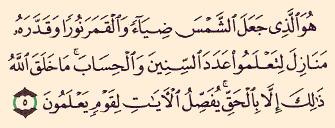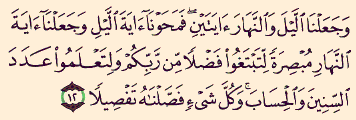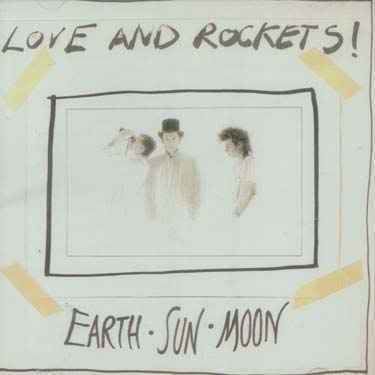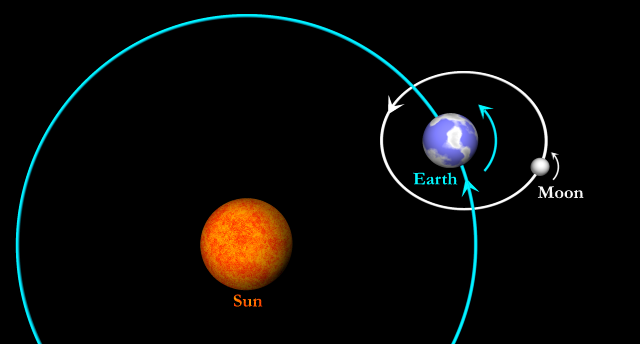Earth-Sun-Moon: Have Muslim gotten it ALL WRONG?
Technorati tags: Malaysia, Islam, Ramadhan, Calendar, Earth, Sun, Moon, Love and Rockets, Bauhaus
Of late, Walski has been pondering about the Islamic (or Hijrah) Calendar quite a bit. Why? For one thing, it's been the indignation that some people express when marketing friendly terms are conjured up to describe Hari Raya and other festivals (cultural or religious) that happen to coincide, or fall close enough to each other.
The offense du jour is, of course, DeepaRaya.
And if anything is to blame it is the Islamic calender, because being a purely lunar calendar, it prances around the solar cycle, each lunar year lagging by 11 days, on average. This causes Hari Raya (and other Islamic observances) to inadvertently clash with other festivals, which are typically based on luni-solar years (generally lunar-based years, but corrected every few years to sync with the solar cycle).
Now the Islamic calendar, apart from its use to predict when religious observances, such as performing the Hajj, or when the month of Ramadhan should be, is absolutely worthless for other day to day practical purposes.
Like it or not, the seasonal changes are due not to the lunar cycles, but to how the Earth orbits around the Sun, plus the Earth's orientation during this orbit. That's just how God designed nature to behave.
Try planning your agricultural activities purely on the Islamic calendar, and eventually widespread famine would probably overcome the Earth. It simply is not practical to use.
Now historically, the Islamic calendar was established by the Caliph Umar, around 638 CE, some years after the death of the Prophet Muhammad. The decision on when to begin the Islamic era was eventually reached, through consensus, by basing it on the migration of the prophet from Mecca to Medina, a pivotal point in Islamic history. You can read the historical background at this link.
(Prior to the establishment of the Islamic lunar calendar, the Muslims of the time used a luni-solar calendar, with a month added (in no particular predictable way) in some years to get the calendar back in sync with the Earth's orbit around the Sun. The practice of adding a month, however, was traditionally considered to be prohibited via Surah 9 (Bara'ah) verse 37.)
But because the actual migration did not occur on a new moon, 1st Muharram 1 AH (Anno Hegira) was backdated to the next earliest new moon, some two weeks prior.
In other words, the choice for when to start the Islamic calendar was purely arbitrary. Granted, the migration was an important event, and Walski is not refuting that at all. The actual start date picked was arbitrary, based on an important event.
(more terra-solar-lunar thoughts in the full post)
And because the start date was arbitrary, and the calendar does not follow the nature of the seasons, are we observing the important religious dates equally as arbitrarily, and not when they were actually meant to be observed?
While mucking around the Internet looking for reading materials on this, Walski came across two articles at the Free-Minds website (read both articles here and here). Both articles have made separate the analyses of how the Islamic calender should be based on the verses of the Quran.
It is not the intention to repeat what has been stated by both articles here, but a few things are quite interesting to note.
Primarily is that the year, as ordained in the Quran, is luni-solar, and not purely lunar. Evidence for this can be found in two verses:
 Surah 10 (Yunos) verse 5
Surah 10 (Yunos) verse 5
[Yusuf Ali traslation] It is He Who made the sun to be a shining glory and the moon to be a light (of beauty), and measured out stages for her; that ye might know the number of years and the count (of time). Nowise did Allah create this but in truth and righteousness. (Thus) doth He explain His Signs in detail, for those who understand.
and
 Surah 17 (Bani Israel) verse 12
Surah 17 (Bani Israel) verse 12
[Yusuf Ali traslation] We have made the Night and the Day as two (of Our) Signs: the Sign of the Night have We obscured, while the Sign of the Day We have made to enlighten you; that ye may seek bounty from your Lord, and that ye may know the number and count of the years: all things have We explained in detail.
In other words, based on the first verse, calculation of the length of a year is influenced by both the Sun and the Moon, and not on the lunar cycles alone. This is further reiterated by the second verse. On planet Earth, the passage of day into night is influenced by the Sun, and not the Moon.
If you find all this intriguing, as Walski does, you really should read both the articles mentioned above. In the articles, there are other verse references that tell when a month should start (and it's not when you think it is), when the actual first day of the year should be, and other surprising information.
And all this leads to one question that Walski now has in his mind; a very important question:
Have Muslims, for more than a millenium, been observing days of religious significance at totally arbitrary times?
And all because of an arbitrary decision made a long, long time ago...
 Walski's musically inspired post-title note of little or no real relevance: Part of the post title is based on the third studio album of Love and Rockets, Earth-Sun-Moon, released in 1987. Love and Rockets was formed from the ashes of the legendary post-punk goth band, Bauhaus, and consists of Daniel Ash (guitar, sax and vocals), David J. (bass and vocals), and Kevin Haskins (drums and synthesizers). After Bauhaus broke up in the early 80's, the trio formed an interim troupe, called Tones on Tail. Bauhaus had a fourth member, Peter Murphy, who didn't want Bauhaus reformed, at the time, and thus broke away to start a solo career.Incidentally, Peter Murphy embraced Islam in the 90's and eventually moved to Turkey. Strong influences of eastern music and Sufi mysticism can be found in his later works. Bauhaus got back together in 1998, for the Resurrection tour, and still continues to perform live on rare occassions - this, despite Peter Murphy's refusal to perform some songs from the Bauhaus repertoire, which he deems has strong religious overtones (such as Stigmata Martyr) - (all information presented here comes from Wikipedia).
Walski's musically inspired post-title note of little or no real relevance: Part of the post title is based on the third studio album of Love and Rockets, Earth-Sun-Moon, released in 1987. Love and Rockets was formed from the ashes of the legendary post-punk goth band, Bauhaus, and consists of Daniel Ash (guitar, sax and vocals), David J. (bass and vocals), and Kevin Haskins (drums and synthesizers). After Bauhaus broke up in the early 80's, the trio formed an interim troupe, called Tones on Tail. Bauhaus had a fourth member, Peter Murphy, who didn't want Bauhaus reformed, at the time, and thus broke away to start a solo career.Incidentally, Peter Murphy embraced Islam in the 90's and eventually moved to Turkey. Strong influences of eastern music and Sufi mysticism can be found in his later works. Bauhaus got back together in 1998, for the Resurrection tour, and still continues to perform live on rare occassions - this, despite Peter Murphy's refusal to perform some songs from the Bauhaus repertoire, which he deems has strong religious overtones (such as Stigmata Martyr) - (all information presented here comes from Wikipedia).

















